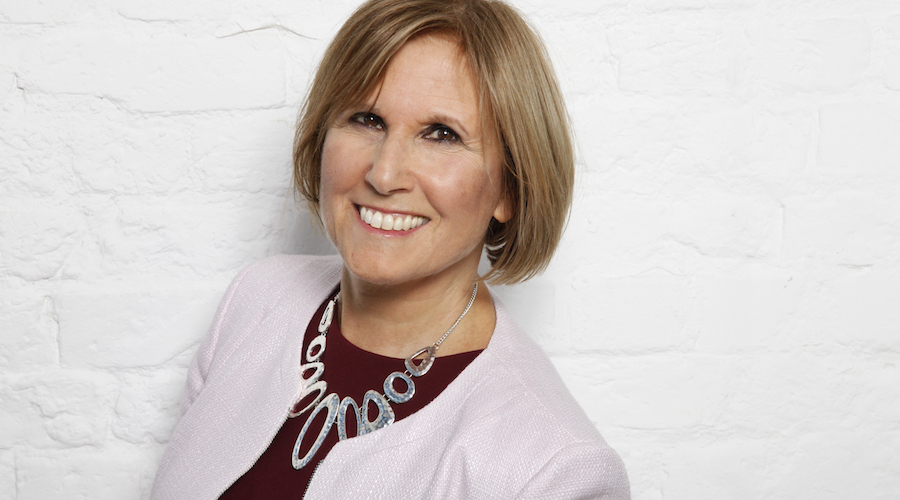Lumina Search's Managing Director Anne Fenton offers her advice for executives on the hunt for a new job.
Finding a new job is a common start to the New Year for many thousands of people in the UK. In the time-honoured tradition of scrolling through LinkedIn alerts, checking through the weekly newsletters and trade publications and arranging numerous cups of coffees with business colleagues, family and friends – the ritual is familiar.
This task is even harder when you are at the top of your profession and have only a few vacancies which will suit your expertise and skills. This is compounded further by the fact that you know there are many dozens of other suitable executives, equally experienced, and looking for these ‘unicorn’ roles. New Year’s resolutions don’t come any more critical than where to find your next role.
The television industry has experienced seismic changes over the last couple of years with increasing consolidation of the major US Studios and content owners, ‘cord-cutting’, threats to the pay TV channels and Home Entertainment from the new FAANG players to name but a few. According to an Ofcom report last year, there are now more UK subscriptions to Netflix, Amazon and Now TV than to ‘traditional’ pay TV services.
Broadcast TV remains popular but viewing among 16 to 34-year-olds is moving online. Spending by the BBC, ITV, Channel 4 and Channel 5, on new UK-made television programmes fell to a 20-year low. At the same time, people are spending less time watching television: average daily broadcast viewing on the television set fell by nine minutes in 2017 – and is down 38 minutes since 2012. These changing consumer habits all have huge consequences for our industry.
For those people based in London who are job-seeking, their woes are compounded by the fact that many businesses are moving out to the regions in production hubs in Leeds, Salford, Glasgow, Cardiff or overseas in anticipation of consequences of Brexit.
However, it’s not all bad news. The new OTT players are investing more than ever in content, and much of this is likely to be produced in the UK over the next few years, as well as other European regional centres. Lumina has certainly experienced a boom in market conditions over the last few months.
The gender gap is increasingly being addressed by high profile female appointments such as Carolyn McCall at ITV, Alex Mahon at Channel 4, Jay Hunt at Apple and Anna Mallett as Chief Executive at ITN. Diversity is everywhere on and off screen.
So while the number of mainstream ‘telly’ jobs may have reduced, senior executives are still faced with the tricky decision of how best to ‘sell’ themselves without devaluing their worth or ‘stock’ by appearing desperate.
At Lumina, I am faced every day with individuals who are looking for ways to ‘put themselves out there’ who want to come up with a plan which widens their chances of finding their next big role.
To kick off the new year, here are my personal top tips for navigating the employment minefield:
1. Focus on strategy not tactics
While it may be surprising that some senior level candidates think they can rely on LinkedIn to find a job, this isn’t the easy solution that it appears to be. Many people complain they never hear back from the company advertising on LinkedIn. Not a very positive experience!
Even senior level executives can forget to do the basics: 1) which companies are you targeting, 2) what is your unique positioning, and 3) what is your strategy for creating “warm” introductions?
Many executives immediately start calling people because they’ve been told they need to network. However, they need to first understand what they want. Be prepared before you contact anyone and ensure that there is a seamless story that connects the verbal story (personal elevator pitch – where you’ve been and what you, specifically, would like to do next) with your LinkedIn profile (career summary) with your CV (detailed business accomplishments).
If your CV indicates you have had a string of CMO positions and yet you verbally indicate you want a GM role, it’s confusing. The art is to tailor the CV for each position.
2. Search firms
Transaction versus relationship orientated: The biggest mistake candidates can make is believing that working with executive search consultants is a discrete transaction and doesn’t require relationship development. Some candidates don’t respond when a recruiter calls or emails because they “don’t need them at that moment”.
The problem is that search firms have a long memory (and a database). With the days of “life-time employment” far behind us, everyone will be in a job search at some point in their career.
Prior rudeness or lack of courtesy may result in that individual being put at the end of the queue; candidates should think about treating executive recruiters (and their associates) like insurance – you regularly invest (in developing the relationship), so that when you actually need it, you will get the help you need.
3. Egos not welcome
A common mistake is to think that you are the answer to a prospective client’s prayers. Not so. Many candidates go to interviews with the mindset that they are not really being interviewed at all, but instead they need to be convinced to join the company concerned. While questions are always welcomed, they should ideally be an afterthought.
Until you have made it past the preliminary interviews, it’s best not to assume anything. Humility is a much rarer and more prized commodity than ego.
4. Approach as a seller not a buyer
Too many candidates consider interviews a fact-finding mission. Rather, in the early stages, candidates should approach the process as a seller rather than a buyer. The goal should be to get invited back rather than to have all of their questions answered.
5. Be prepared
An individual is never bigger than the organisation, no matter the position, and this logic is great advice for interviews. Show interest in their business too, and show that you have researched them thoroughly and looked at their website at the very least.
So my top tips are:
- Define your strategy
- Do your homework on the company
- Be prepared for the interview (don’t just ask questions)
- Be humble
- And finally….
Be nice to Executive Search Consultants – both as a client and as a candidate. They could be the best friend you’ve ever had!
Anne Fenton is Managing Director of Lumina Search, a C-Level executive recruiting firm that specializes in executive management for companies across media, entertainment and digital media.









